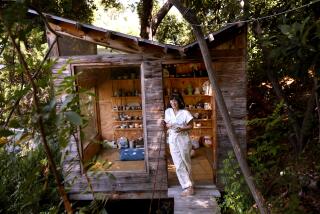Lee Case Sparked Activism Among Asian Americans
- Share via
FREMONT, Calif. — Cecilia Chang says she used to look the other way when people talked about “heavy stuff”--civil liberties, constitutional rights, discrimination.
Now she carries a stack of petitions, cajoling signatures from strangers to bolster a presidential pardon campaign for her friend Wen Ho Lee, the Taiwanese American scientist once suspected of spying against the United States.
Two years ago Friday--Sept. 13, 2000--Lee was freed from nine months of solitary confinement as the investigation around him crumbled.
While convicted on a single count of copying sensitive nuclear weapons data, Lee received an apology from a federal judge for his treatment. The activism his case inspired continues to flourish in Chang, along with many other Asian Americans who have no personal connection to Lee.
“It was really a watershed moment in terms of Asian Americans coming of age,” said Karen Narasaki, president of the National Asian Pacific American Legal Consortium in Washington. “For the first time, you had Asian American professionals thinking about criminal justice and the issue of whether the government is always right.”
In Fremont, Chang has started a group inspired by the Lee case, Justice for New Americans. In Sacramento, activist Ivy Lee created the Chinese American Political Action Committee, which has about 30 members.
And in Detroit, Marie-Ange Weng formed the Council of Asian Pacific Americans, a coalition of groups with about 1,000 members.
Wen Ho Lee, a former Los Alamos National Laboratory scientist, was suspected of stealing what officials called the “crown jewels” of U.S. nuclear weapons science with the intent of handing them over to China.
He was fired, then later arrested--though charged with unlawfully copying material, not spying--and imprisoned.
In September 2000, he pleaded guilty to a single count of downloading data to computer tape. He has said he made copies to protect data from being erased.
The government dropped 58 other counts, and U.S. District Judge James Parker apologized to Lee, saying the Justice and Energy departments had “embarrassed our entire nation and each of us who is a citizen of it” by the way they handled the case.
Lee’s case raised the specter of a stereotype that runs throughout Asian American history, “of being the foreigner, not necessarily being trusted,” Narasaki said.
The 51-year-old Chang met Lee when she was living in New Mexico more than 20 years ago.
Though she is a friend of the family, her advocacy work is not directed by the Lees. Aside from a brief tour for his book, “My Country Versus Me,” Lee himself has stayed out of the public eye.
He spends his days at home in Los Alamos, N.M., fishing, cooking, writing and looking for another job in private industry or at a university.
More to Read
Sign up for Essential California
The most important California stories and recommendations in your inbox every morning.
You may occasionally receive promotional content from the Los Angeles Times.










